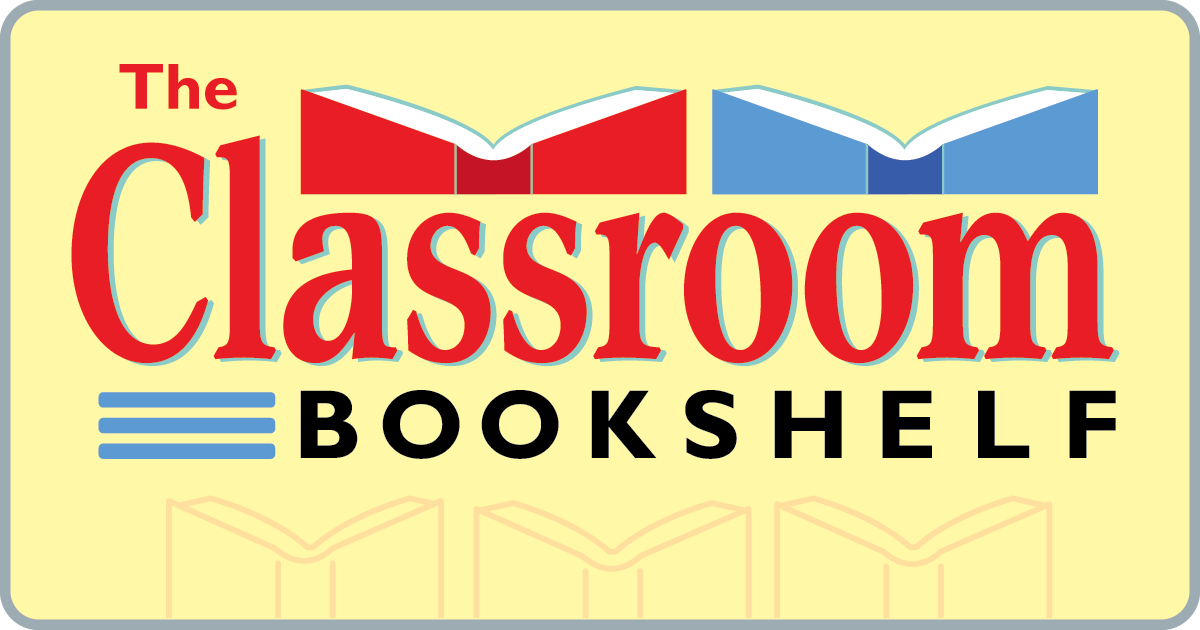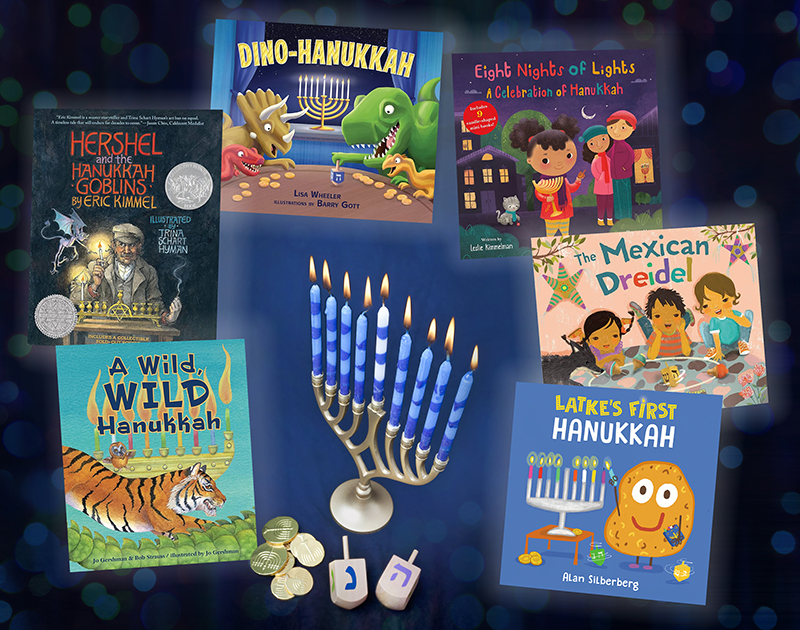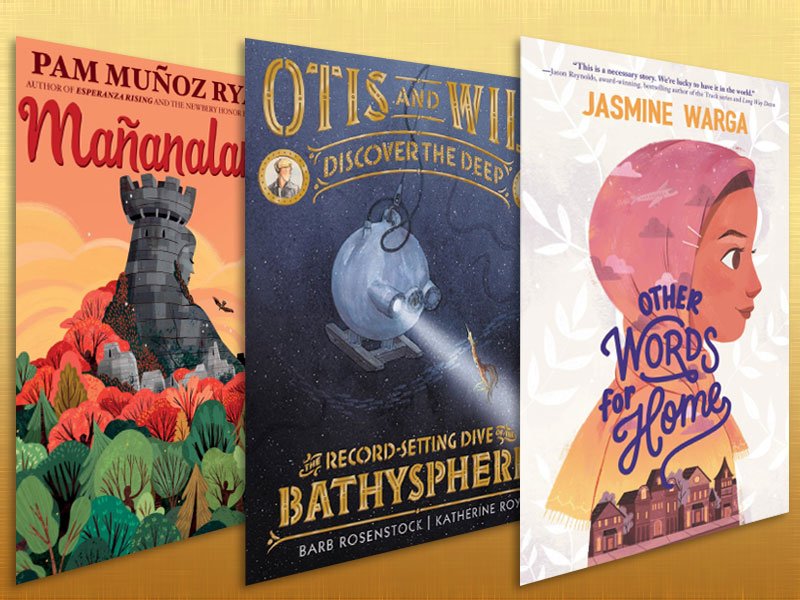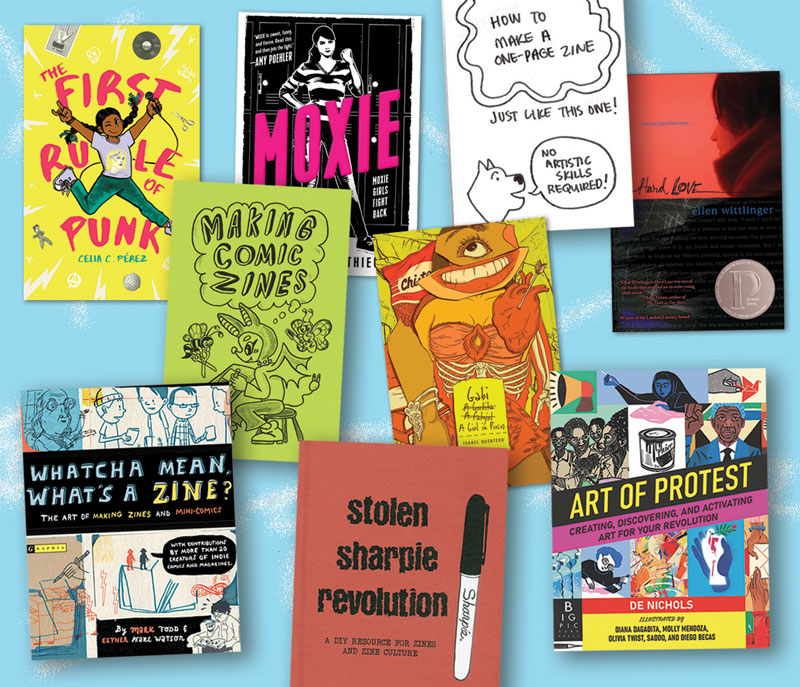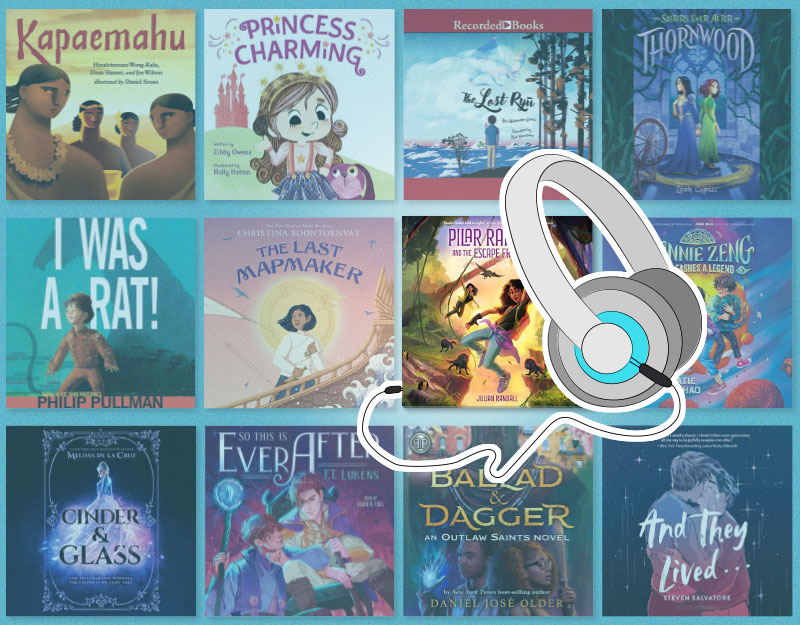Poetry as History in The Undefeated
The Undefeated

The Undefeated
Written and Illustrated by Kwame Alexander and Kadir Nelson
Published by Versify / Houghton Mifflin Harcourt in 2019
ISBN 978-1-328-78096-6
Grades 5 and Up
Book Review
“This is for the unforgettable / The swift and sweet ones / who hurdled history / and opened a world / of possible.” The Undefeated, a new picture book created by acclaimed author Kwame Alexander and award-winning illustrator Kadir Nelson has been described as “a love letter to America. To black America” (book jacket). The text is a poem that traverses the history of the United States, tracing the trauma and the triumphs of Black / African American experiences from enslavement to the Civil Rights Movement to Black Lives Matter. Key figures are depicted and described by adjectives (such as: unforgettable, undeniable, unflappable, unafraid…) but remain unnamed until the back matter. An Afterword describes Alexander’s intentions for the poem and is followed by a detailed listing titled “Historical Figures and Events Featured in the Undefeated.” Kadir Nelson’s oil paintings deepen the poignancy of the reading experience and lend additional meanings to the text of the poem. Equally honest, heartbreaking, and hopeful, this unforgettable book will open up a ‘world of possible’ in your classroom.
Teaching Ideas: Invitations for Your Classroom
Assumed Prior Knowledge. The Undefeated is a relatively spare poem that still covers the expanse of America’s political, social, and cultural history. Copy the text of the poem into a document you project, and read the poem aloud. Ask your students what they think it’s about. Why? Ask them to consider what prior knowledge Kwame Alexander assumes his readers have. What clues does he drop for his readers? For example, they likely recognize the phrase “Black Lives Matter,” but they may not recognize the phrase “We Real Cool” from the poem by Gwendolyn Brooks of the same name. Have students explore the picture book in small groups, and have them consider what the back matter explains.
ADVERTISEMENT
ADVERTISEMENT
The Subjects of The Undefeated. While some of the people featured in The Undefeated will feel familiar to students, others will not. Curate a collection of digital and print resources to provide more information about the historical and contemporary figures referenced by Kwame Alexander and Kadir Nelson. You might also choose to gather a collection of picture book biographies featuring these subjects – there are many excellent titles available. Search our blog and consult with your local school or public librarian. As students learn more about each subject ask them to consider how their lives exemplify the descriptor(s) that Kwame has chosen for them. As an extension, invite students to draft free verse poems celebrating the perseverance and accomplishments of these individuals. Alternatively, students could create large portraits of these subjects and surround the portraits with text describing their lives and accomplishments.
The Unspeakable. In an interview with NPR, Kadir Nelson describes the blank page that follows the lines “The ones who survived America/ by any means necessary./ And the ones who didn’t.” as a “moment of silence”. Later in the book, Kwame Alexander repeats three times the line: “This is for the unspeakable” as Kadir’s images depict across time: slave ships, the four young black girls who were killed in the 16th Street Baptist Church bombing in Birmingham, Alabama, and four contemporary black youth who were victims of police brutality. Discuss these artistic choices with your students. How can art (visual and written language) enable us to bear witness to trauma inflicted by and on human beings? How do Kwame and Kadir bring us through sadness and outrage, yet leave us in a place of hope?
Performing Poetry: A Choral Reading. Poetry is an oral art and meant to be performed aloud. Provide your students with the opportunity to hear Kwame perform The Undefeated. Next, break your class up into 4-5 groups and assign each group a segment of the text. Invite students to plan and perform a reading of their section using a combination of single, few, and many voices in their group. Ask them to consider carefully which words and phrases they want to emphasize and how they will do so. How can they use their voices to express the emotions embedded in the poem? Offer adequate time for rehearsal and an opportunity to perform their choral reading for an audience.
Intertextuality. Throughout the text of The Undefeated, Kwame Alexander references significant texts from Black / African American History. These references appear in italics throughout the book. Explore the origins of these quotes with your students, considering how the lines from these poems, speeches, and songs fit into the narrative arc created by the author. These references include Gwendolyn Brooks’ “We Real Cool” , Langston Hughes’ “The Weary Blues”, The Big Sea, and “My People” (“The night is beautiful”), Dr. Martin Luther King Jr’s Nobel Lecture (“The majestic shores of the promised land”), The Freedom Singers’ We Shall Not Be Moved, Malcom X’s Speech at the Founding Rally of the Organization of Afro-American Unity (“by any means necessary”).
“The Golden Shovel”: Remixing The Undefeated. Share with your students the work of Nikki Grimes, master poet. In her anthology One Last Word: Wisdom From the Harlem Renaissance, Grimes employs a poetic form called “The Golden Shovel” to celebrate poets of the Harlem Renaissance. She describes the technique: “The idea of the Golden Shovel is to take a short poem in its entirety, or a line from that poem (called a striking line), and create a new poem, using the words from the original” (p. 6). Drawing on One Last Word as a mentor text, introduce this form to your students and ask them to select a line from The Undefeated to use as the basis for a poem that they compose.
ADVERTISEMENT
ADVERTISEMENT
The Black Experience: Poetry as a Timeline. The Undefeated offers a clear invitation to explore the less frequently told history of Black / African American contributions, activism, and experiences. Consider how you can engage your students with this history across the school year as an integral part of your curriculum. For example, The Undefeated could serve as a scaffold reading experience to launch a reading of Kadir Nelson’s Heart and Soul: The Story of America and African Americans. Be sure to see our Classroom Bookshelf Entry for this title – it includes a wide range of digital resources to support your study. Additionally, the resources that have been generated in connection with The 1619 Project offer excellent guidance on how we must rewrite our history curricula. In his Afterword, Kwame reminds us: “…much of what I am talking about in this poem, so much of American history, has been forgotten, left out of the textbooks, and that to truly know who we are as a country, we have to accept and embrace all of our woes and wonders.”
Wonder, Words,and Wisdom: Kwame Alexander, An Author Study. Kwame Alexander’s body of work provides a broad range of life lesson for young readers. Additionally, his books prompt readers to use reading and writing as vehicles for self-expression and for learning more about the human experience. Use our Classroom Bookshelf Entries on The Crossover (2015), Booked (2016) Rebound (2018) and Out of Wonder (2017) as well as our Wonder, Words, and Wisdom entry created for a Literacy for All conference presentation.
Critical Literacy
Transformation Over Time: The Journey of a Poem. In his Afterword, Kwame Alexander describes how The Undefeated had its origins in a poem that he wrote in 2008 to commemorate the birth of his daughter and the election of Barack Obama. In 2016, Kwame was invited to submit a poem for the launch of ESPN’s Undefeated. Then in 2019, a new version of the text was published as a picture book illustrated by Kadir Nelson. Invite your students to examine how the poem changed between the version created for ESPN’s The Undefeated, titled “This One is For Us” and the text of The Undefeated. Explore the resources below that describe the back story of the picture book. As critical literacy practice, ask students to describe how the different versions of the poem seek to reach different audiences. Consider, too, the different aesthetic experiences offered by the ESPN video version (which includes archival photographs and video footage) and by Kadir Nelson’s illustrations.
Further Explorations
Digital Resources
Author’s Website: Kwame Alexander
Illustrator’s Website: Kadir Nelson
ESPN The Undefeated: This One is For Us
NPR: This is for ‘The Undefeated’: A New Picture Book Celebrates Black Brilliance
National Gallery of Art: The Undefeated
WNYC: Author Kwame Alexander Wants to Help Young People Imagine a Better World
WPR: A Look At The Power, Actions Of Black Americans Through Poetry
The 1619 Project – The New York Times
Books
Alexander, K. (2018). Rebound. Boston: Houghton Mifflin Harcourt.
Alexander, K. (2016). Booked. Boston: Houghton Mifflin Harcourt.
Alexander, K. (2014). The crossover. Boston: Houghton Mifflin Harcourt.
Grimes, N. (2017). One last word: Wisdom from the Harlem Renaissance. New York: Bloomsbury
Hughes, L. (2012). I, too am America. Ill. by B. Collier. New York: Simon & Schuster.
King, M.L. (2012). I have a dream. Ill. by K. Nelson. New York: Schwartz & Wade.
Nelson, K. (2011). Heart and soul: The story of American and African Americans. New York: Blazer & Bray.
Weatherford, C.B. (2014). Sugar Hill: Harlem’s historic neighborhood. Ill. by R.G. Christie. New York: Albert Whitman.
Filed under: Announcements, Picture Books, Poetry, Poetry Picture Books
About Erika Thulin Dawes
Erika is a professor of language and literacy at Lesley University. A former classroom teacher, reading specialist, and literacy supervisor, she now teaches courses in children’s literature, early literacy, and literacy methods. Erika is the co-author of Learning to Write with Purpose, Teaching with Text Sets, and Teaching to Complexity.
ADVERTISEMENT
ADVERTISEMENT
SLJ Blog Network
One Star Review, Guess Who? (#202)
Review of the Day: My Antarctica by G. Neri, ill. Corban Wilkin
Exclusive: Giant Magical Otters Invade New Hex Vet Graphic Novel | News
Parsing Religion in Public Schools
Take Five: LGBTQIA+ Middle Grade Novels
ADVERTISEMENT

